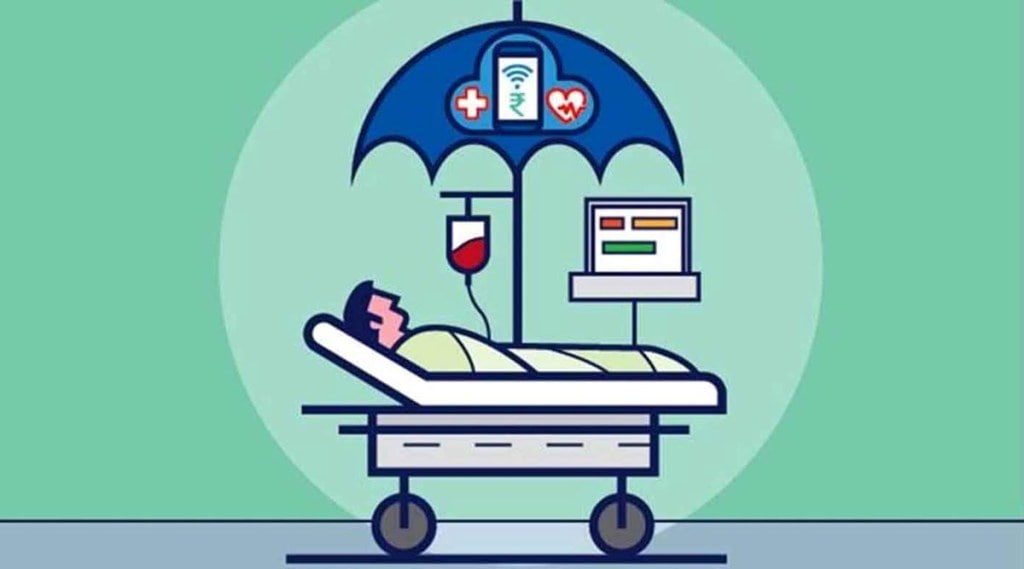Insurance companies mostly highlight the interesting features of health insurance plans to attract people. However, apart from the broad coverage, several terms and conditions are there that come into play at the time of claim processing.
So, while taking an insurance cover, one should read between the lines to know what is there in the fine prints of the policies that may cause problems at the time of claim settlements.
Dr. Pallavi Seth, Faculty, Amity School of Insurance, Banking and Actuarial Science, Amity University, Noida, highlights such terms and conditions that are hard to locate in the fine prints of health insurance policies.
“Pandemic has changed the perception of people towards insurance products. People have started looking deep into their health and wellness. This also includes buying the correct health insurance plans. Although people have started buying health insurance, many of them still don’t understand the nitty-gritty of these plans. And when they raise a health insurance claim, either the company pays partially or refuses to pay the claim. In order to prevent oneself from this situation, one should read the fine prints of the policy very carefully,” she said.
Dr. Seth lists the following terms and conditions that you should read carefully while applying for a health insurance policy:
Waiting Period
Most insurance companies have waiting periods for pre existing diseases. There are plans, which cover the preexisting diseases after a waiting period of one or two years, but some companies cover them only after 4 years. There are also specific waiting periods for specified diseases/ procedures like cataract, joint replacement etc. You should try to choose the company with the least waiting period so that you get comprehensive coverage of your health.
Sub Limits
There are sub limits on room rent in the hospitals and also on some specific procedures. Although choosing the health insurance plan with high sub limits can appear to be cheaper to you, you may actually end up paying more out of your pocket. You should choose the policy with no sub limits.
Restoration Benefit
An insurance policy may appear cheaper to you but if the policy is not having restoration benefit, you may be at loss in the long run. As the healthcare expenses have inflated in the last few years, you may exhaust the complete sum insured in one surgery or hospitalisation. If your policy has restoration benefit, the insurance company restores the original sum insured after it gets fully exhausted for the treatment of the illnesses. Say, you have a health insurance policy with a sum assured of Rs 5 lakh, and the whole sum assured is exhausted in the treatment of heart surgery. If you have the restoration benefit, your policy will restore the original sum assured of Rs 5 lakh, which can be used for the remaining policy period.
Claim Sharing
If your insurance policy has a co-pay clause, you will agree to pay a part of the medical expense out of your own pocket, and the insurer will cover the rest. If the co-pay amount is high, you may have to pay a huge share of the claim. You should choose a policy with no copayment or least amount of copay.
Wellness Benefits
Many of the insurance companies track your data through wearable devices and health apps, like number of steps per week, calorie counter, and healthy heart rate. If you show healthy behaviour, insurance companies provide a discount on renewal premium or increase the sum assured. You should always look at your insurance policy if these benefits are provided so that you may avail them at the time of renewal.
Exclusions
Health insurance policies have a list of exclusions that should not be ignored at all. While buying the policy, you should look at all the treatments, procedures or diseases which are excluded in the policy. This way you can arrange separate funds for the medical expenses incurred in these exclusions.
Pre and Post hospitalisation expenses
Pre-hospitalisation Medical Expenses means medical expenses incurred during pre-defined number of days preceding the hospitalisation of the Insured person while the Pre-hospitalisation Medical Expenses means medical expenses incurred during pre-defined number of days preceding the hospitalisation of the Insured person. To include in a claim, both the expenses need to be for the same condition for which the insured person’s hospitalisation was required. Most of the insurance companies pay pre and post hospitalisation expenses but you may not be aware of this and may not claim for the expenses incurred here.
“You need to understand that every health insurance plan comes with an option of a free-look period of 15 days. This period provides an opportunity to you to review the policy after buying and understand the minute details of the policy. You have the benefit to cancel the contract in case of some unacceptable clauses, and the insurance company shall refund any amount paid if the policy is cancelled in the free look period subject to no claims being made in the policy,” said Dr. Seth.
“Hence, it is very important for the buyer to be aware of all the policy clauses and read all the terms and conditions of the policy in detail so that you may have no nightmares at the time of making the health insurance claim,” she added.
